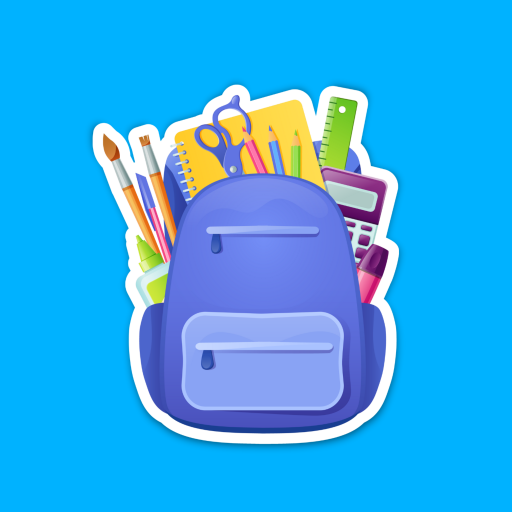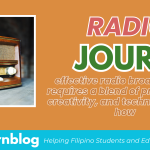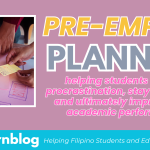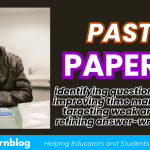Elaborative interrogation is a powerful study technique where students actively ask themselves “why” questions to understand information at a deeper level. This strategy encourages learners to go beyond surface-level memorization by engaging with the material critically, helping to build meaningful connections. When used effectively, elaborative interrogation enhances comprehension, promotes critical thinking, and deepens retention, making it ideal for students tackling complex subjects. Here’s how to apply this approach, common pitfalls to avoid, and research supporting its effectiveness.
Table of Contents
What is Elaborative Interrogation and How Does It Work?
Elaborative interrogation helps students link new information to prior knowledge by exploring the reasons behind facts or concepts. For example, when studying biology, a student might ask, “Why does photosynthesis require sunlight?” or “Why does a plant produce oxygen as a byproduct?” Asking these “why” questions prompts students to look beyond isolated facts, connecting ideas and forming a more comprehensive understanding of the topic.
This technique is rooted in cognitive science principles, which suggest that learning is enhanced when we engage with material actively rather than passively. By actively constructing explanations, students improve their mental organization and strengthen memory pathways, which can make recall easier and learning more efficient.

Steps to Use Elaborative Interrogation Effectively
- Regularly Ask “Why” Questions Each time you encounter new information, prompt yourself with a “why” question. For instance, if you’re learning about gravitational force, ask yourself, “Why does gravity pull objects toward the center of the Earth?” or “Why does the Moon stay in orbit around the Earth?” These questions push you to think about underlying concepts and relationships.
- Connect New Information to Existing Knowledge The technique is especially powerful when you can relate new information to something familiar. For example, if learning about supply and demand in economics, relate it to real-life examples like pricing trends or popular products. By linking new ideas to what you already know, you reinforce memory connections and make recall easier later on.
- Use a Study Journal for Questions and Explanations Recording your “why” questions and answers in a study journal is an excellent way to reinforce the learning process. This journal provides a valuable reference for later study sessions and gives you a way to track your thinking. Over time, you can revisit your notes to refine or expand your understanding as new concepts are introduced.
- Review and Refine Your Explanations After answering a “why” question, go back and review your explanation to ensure it’s both accurate and complete. Elaborative interrogation works best when explanations are logically sound, so periodically refine your responses. Reviewing explanations is especially helpful when preparing for exams, as it reinforces understanding and helps you identify gaps in knowledge.
- Use Elaborative Interrogation Across Subjects This strategy can be applied in a variety of contexts. For example:
In Science: Ask “why” questions about processes, such as “Why does metal conduct electricity better than wood?”
In Literature: Explore character motives, such as “Why did the protagonist choose to leave home?”
In History: Investigate causes and effects, like “Why did this event lead to significant societal change?”
Asking “why” across subjects makes studying dynamic and helps you understand each topic within its broader context.
Common Misconceptions about Elaborative Interrogation
- Memorization Alone is Enough Many students rely solely on memorization, thinking that repetition will ensure they remember. However, research shows that memorization alone often leads to shallow learning, where facts are easily forgotten. By asking “why” questions, students dig deeper and engage more critically, which aids long-term retention and understanding.
- It Takes Too Much Time Some learners feel that elaborative interrogation is too time-consuming, especially when studying for exams or preparing for deadlines. While it does take more effort initially, it ultimately saves time in the long run because students understand material more thoroughly, reducing the need for repeated review.
- It Only Works for Certain Subjects There’s a misconception that this technique is only effective for subjects like science or history. In reality, elaborative interrogation can be applied to virtually any topic. Even in mathematics, students can ask “why” questions to deepen their understanding of concepts rather than just following formulas.
Supporting Evidence for Elaborative Interrogation
Studies show that elaborative interrogation significantly improves comprehension and retention. For example, cognitive science research indicates that students who use this technique tend to perform better on exams that assess understanding rather than rote memory. One study found that participants who used elaborative interrogation recalled twice as much information as those who relied solely on reading or simple review.
This technique encourages students to become more active participants in their learning process. By seeking explanations, students not only reinforce their existing knowledge but also enhance critical thinking skills, making them better equipped to tackle unfamiliar problems in the future. Elaborative interrogation has even been shown to help students retain information over longer periods, making it a beneficial tool for both short-term study goals and lifelong learning.

Additional Tips for Making the Most of Elaborative Interrogation
- Don’t Be Afraid to Go Beyond the Textbook
Sometimes, your textbooks or class notes might not provide enough depth to fully answer a “why” question. When this happens, consult additional resources like reputable websites, documentaries, or supplementary books. Expanding your research not only enriches your answers but also broadens your overall understanding of the subject. - Ask Follow-Up Questions
Elaborative interrogation works best when it’s ongoing. Once you answer a “why” question, see if that answer leads to additional questions. For instance, if studying ecosystems, after asking, “Why do predators rely on prey populations?” you could follow up with, “Why does this relationship impact biodiversity?” Following this chain of inquiry deepens knowledge and helps you see the “big picture.” - Discuss Your Questions with Others
Explaining your answers to classmates, friends, or family members can reinforce your understanding and reveal gaps in knowledge. Sometimes, discussing your questions and explanations with others helps refine your thoughts and uncover new insights.
Elaborative interrogation is a valuable study technique that encourages students to actively engage with their material by asking “why” questions. This approach goes beyond mere memorization, helping students understand complex topics at a deeper level. By connecting new knowledge to existing ideas, recording questions and answers, and refining explanations over time, learners can significantly improve their comprehension and retention. Research supports its effectiveness across subjects, showing that this method not only enhances memory but also develops critical thinking skills. As you incorporate elaborative interrogation into your study routine, you’ll find that this strategy helps you become a more confident and capable learner.











